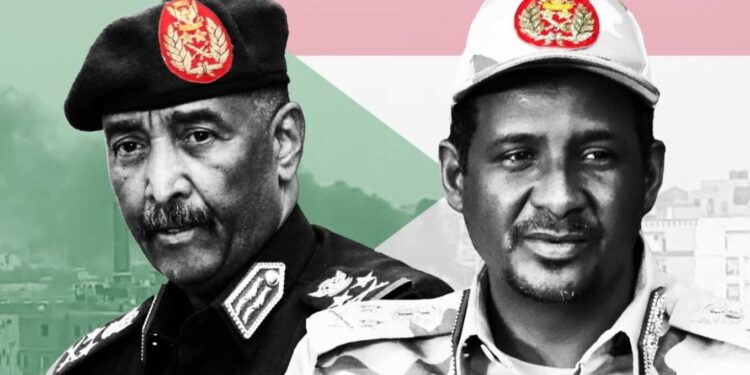By John Ikani
After more than a week of discussions in Geneva, a new group of mediators from Saudi Arabia, Egypt, and the United Arab Emirates worked to secure increased aid and better protection for Sudanese civilians facing famine, displacement, and disease due to 16 months of conflict between the army and RSF paramilitary forces.
On Friday, the mediators, known as the Aligned for Advancing Lifesaving and Peace in Sudan (ALPS) Group, announced they had “secured agreements from both sides in the conflict to allow safe and unhindered humanitarian access through two critical routes – the Western border crossing in Darfur at Adre and the Dabbah Road, providing access from Port Sudan through the north and west.”
Aid trucks are already moving toward the Zamzam displacement camp in Darfur, a region declared to be in famine. The UN humanitarian agency OCHA confirmed that 15 trucks had successfully crossed the border.
“These routes need to stay open and secure so we can increase aid to Darfur and start reversing the famine. Food and starvation must not be used as weapons of war,” the group emphasized in their final statement.
The mediators also reported making headway in opening an access route via the Sennar junction in the southeast.
SAF Absence Hampers Progress
However, the group acknowledged that any progress made was still insufficient for addressing one of the world’s worst humanitarian crises, where one in five people have been displaced and tens of thousands have lost their lives. Over half of Sudan’s 50 million population is currently facing severe hunger.
“We are hopeful that this will generate momentum for much larger strides and progress moving forward,” stated US Sudan envoy Tom Perriello at a Geneva press conference on Friday.
“The unfortunate reality is that the crisis in Sudan is so dire that we could hold four of these [negotiation rounds] and still barely address the needs of the Sudanese people.”
Highlighting the existing obstacles, only a small portion of the aid available at Adre has been delivered this week. This is because the army-aligned government halted movements after the crossing opened for the first time in months.
Despite significant diplomatic efforts, the Sudanese Armed Forces (SAF) were dissatisfied with the format and chose not to send an official delegation to Switzerland, although they maintained phone contact with the mediators.
“While we were in constant virtual communication with SAF, we regret their decision not to attend in person. We believe this limited our ability to achieve more substantial progress on critical issues, particularly a nationwide ceasefire,” ALPS stated in their concluding remarks.




































